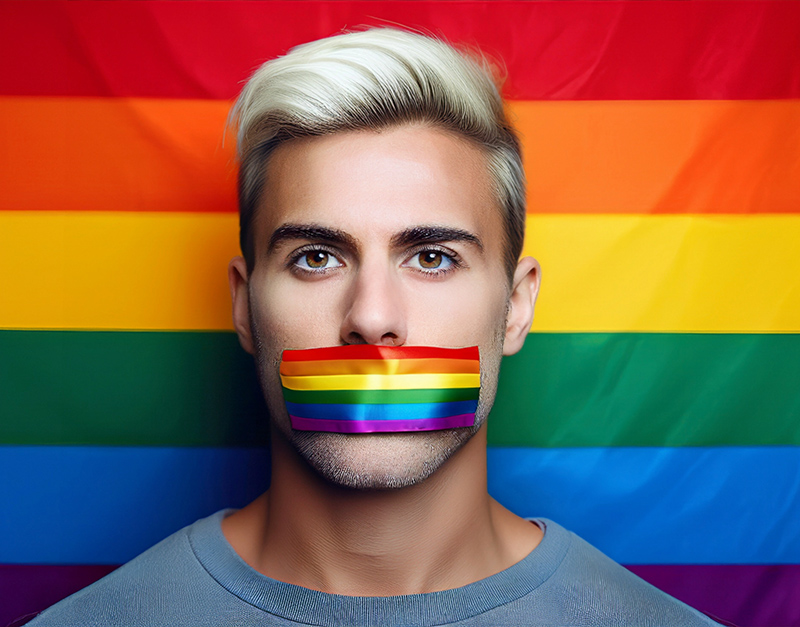Mississippi lawmakers send bill banning transgender athletes from competing to governor
Bill heads to Gov. Tate Reeves, who has previously called for banning trans athletes from women's sports

Mississippi lawmakers have passed a bill barring transgender athletes from competing in sports based on their gender identity, becoming the first state this year to pass a law targeting the transgender community since Idaho passed a similar bill last year.
The bill, SB 2536, would require any public school of university to designate their athletic teams as male, female, or co-ed, and restrict athletes assigned male at birth from competing on female-designated teams.
However, cisgender women (and presumably transgender males) will still be allowed to participate on a male team.
The bill passed the State House of Representatives by a 81-28 margin on Wednesday after having passed the Senate last month by a 34-9 margin. It now heads to Gov. Tate Reeves (R), who has vowed to sign the measure into law.
Reeves previously denounced President Joe Biden’s executive order prohibiting anti-LGBTQ discrimination because he believes it will have a detrimental effect on women’s sports.
“I don’t understand why politicians are pushing children into transgenderism in the first place,” Reeves tweeted about the executive order. “I certainly don’t understand why the President chose to make it a priority. And my heart breaks for the young women across America who will lose in this radical social experiment.”
Lawmakers in more than two dozen states have proposed legislation to restrict transgender student-athletes from participating in sports based on their gender identity, with the most recent being introduced in Wisconsin. But Mississippi is the first to approve such measures, which went down to defeat in South Dakota on Wednesday and Utah last week.
The bill’s sponsor, State Sen. Angela Burks Hill (R-Picayune), told ABC News she was motivated to sponsor the bill after reading about an ongoing dispute in Connecticut, where two transgender high school track stars were allowed to compete as females and won a number of titles.
Three cisgender athletes who were rivals of both athletes subsequently sued, seeking to overturn the Connecticut Interscholastic Athletic Conference’s policy — which conforms with state law — allowing transgender participants to compete in their gender identity.
“If we do not move to protect female sports from biological males who have an unfair physiological advantage, we will eventually no longer have female sports,” Hill said, although she could not point to any instance in which transgender females were competing on girls’ teams in Mississippi.
The Associated Press reported that two dozen other state lawmakers sponsoring similar bills were unable to point to instances in their own states that mirrored the Connecticut case.
Chase Strangio, an attorney with the American Civil Liberties Union who is representing the two transgender athletes in the Connecticut lawsuit, said that bans like the one pushed by Hill are simply an attempt to further marginalize transgender people.
See also: Minnesota bill would impose criminal penalties on transgender athletes
On Thursday, the Human Rights Campaign hosted a virtual press conference, during which it condemned the bill’s passage. Noting that 131 anti-LGBTQ bills have been introduced in various legislatures this year alone, HRC President Alphonso David called the Mississippi bill, and others like it, part of a “national, coordinated effort” by anti-LGBTQ forces to stall or undermine equality for LGBTQ people — especially transgender individuals, who are expressly targeted by 71 of the bills.
“These bills are not designed to solve a problem or address constituent concerns. Rather, these anti-LGBTQ leaders are taking painstaking efforts to legislate against LGBTQ people,” David said. “We need to make sure that we tell everyone around the country what they’re actually doing. They’re targeting transgender kids for political gain.
“Transgender kids, including trans girls participating in sports, harms no one,” David added, noting that women’s groups such as the National Women’s Law Center and the Women’s Sports Foundation support trans inclusion in athletics.
“There are real issues with gender parity in athletics when it comes to funding, when it comes to resources, when it comes to pay equity and more. But excluding transgender students or transgender people from sports…promotes baseless fears about trans athletes, and it does nothing to address the problems that really do exist,” David said.
“And furthermore, we’re in a global pandemic. Our focus should be on protecting and educating our children, not isolating them further, or teaching them that they or their classmates are less than anyone else.”
Read more:
American Psychological Association opposes gender identity change efforts
Alabama House passes bill to eliminate requirement that sex ed courses condemn homosexuality
Federal judge rules beauty pageant can bar trans women from competing
Support Metro Weekly’s Journalism
These are challenging times for news organizations. And yet it’s crucial we stay active and provide vital resources and information to both our local readers and the world. So won’t you please take a moment and consider supporting Metro Weekly with a membership? For as little as $5 a month, you can help ensure Metro Weekly magazine and MetroWeekly.com remain free, viable resources as we provide the best, most diverse, culturally-resonant LGBTQ coverage in both the D.C. region and around the world. Memberships come with exclusive perks and discounts, your own personal digital delivery of each week’s magazine (and an archive), access to our Member's Lounge when it launches this fall, and exclusive members-only items like Metro Weekly Membership Mugs and Tote Bags! Check out all our membership levels here and please join us today!




























You must be logged in to post a comment.